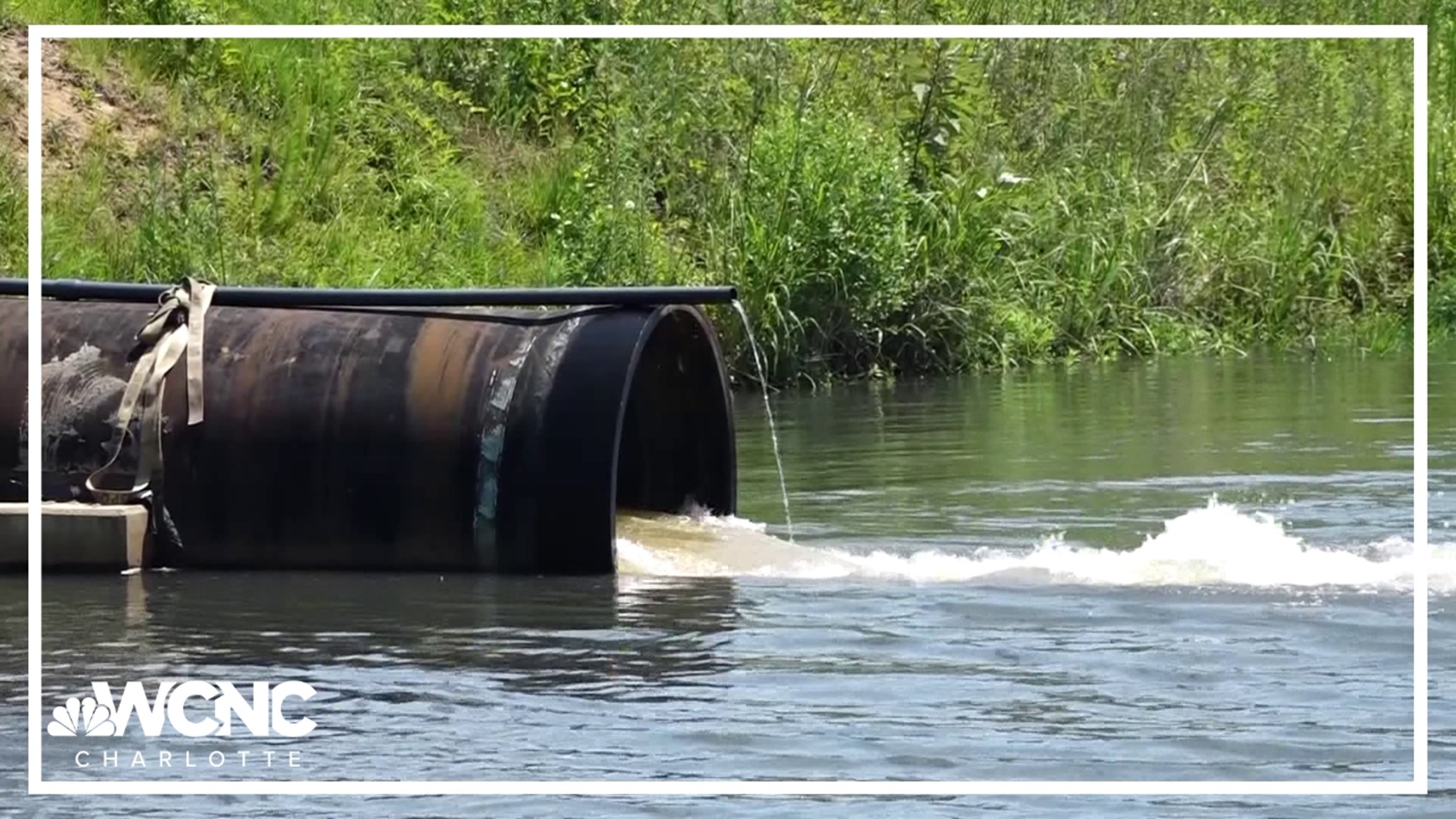CHARLOTTE, N.C. — This month, the EPA released its annual report on how it’s making strides in tackling PFAS contamination nationwide.
PFAS, known as forever chemicals, are man-made toxins that are hard to break down. High levels of these chemicals are dangerous for humans and can cause cancer.
Forever chemicals are, "found almost everywhere in very, very low concentrations," Mecklenburg County Director of Water Quality Rusty Rozzelle said.
The EPA is ramping up research on the toxins found at wastewater treatment plants, certain manufacturers, landfills, and airports.
Sampling data shows that Charlotte Douglas International Airport is one of the highest sources of forever chemicals in Mecklenburg County because of the use of firefighting foam.
"It could be from training exercises, it could have been from occasional leaks or spills," Rozzelle said.
Charlotte’s fire training academy is the county’s other high source of PFAS contamination for the same reason.
However, Rozzelle said nearby residents shouldn’t necessarily be worried.
"Where they have found it at the airport is in groundwater," Rozzelle explained. "The people that live near the airport are almost predominantly on Charlotte Water."
In other words, the contaminated groundwater can't reach people's drinking water.
RELATED: 'We must have clean water' | Report reveals levels of toxic forever chemicals in freshwater fish
Rozzelle said the state is working to get money to address the contamination around the airport and training facility.
Luckily, Catawba Riverkeeper Brandon Jones said Charlotte’s drinking water fairs well compared to other communities.
"The concentrations that we've seen in the Catawba are much lower than most of the current human health risk assessments," Jones said. "So, unlike in the Wilmington area or in the Pittsburgh area, we're not seeing those really high levels of concentrations."
However, Jones said researchers don’t know much about PFAS yet. While forever chemicals can be hazardous, it's unclear what levels should be acceptable in waterways.
"The fact is that we really don't know the risk," said Jones.
The EPA said in its annual report it’s working to adjust national drinking water standards for PFAS and hopes to have the new thresholds approved early next year.
The report says it's also working on new regulations for PFAS manufacturers.
Contact Julia Kauffman at jkauffman@wcnc.com and follow her on Facebook, X and Instagram.

